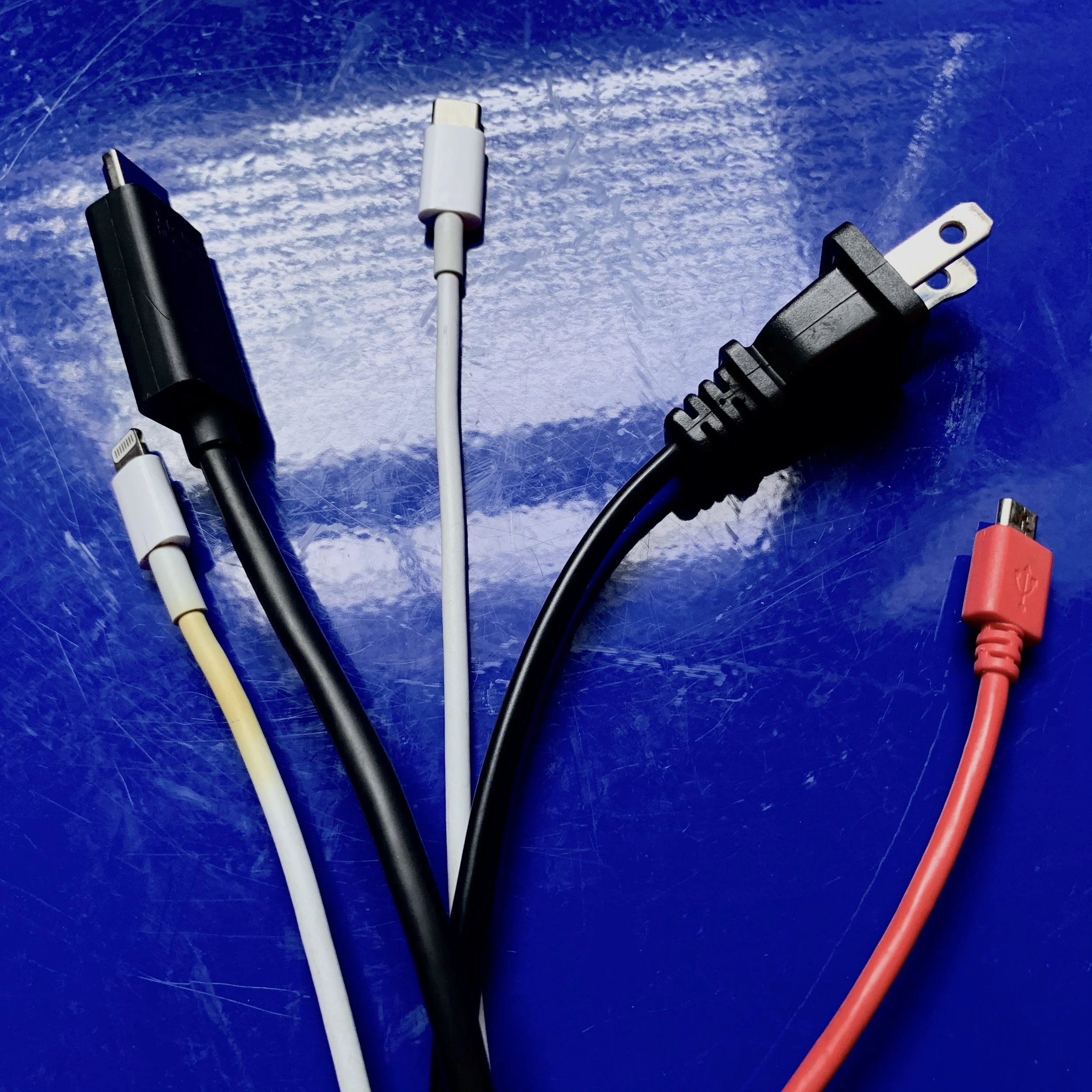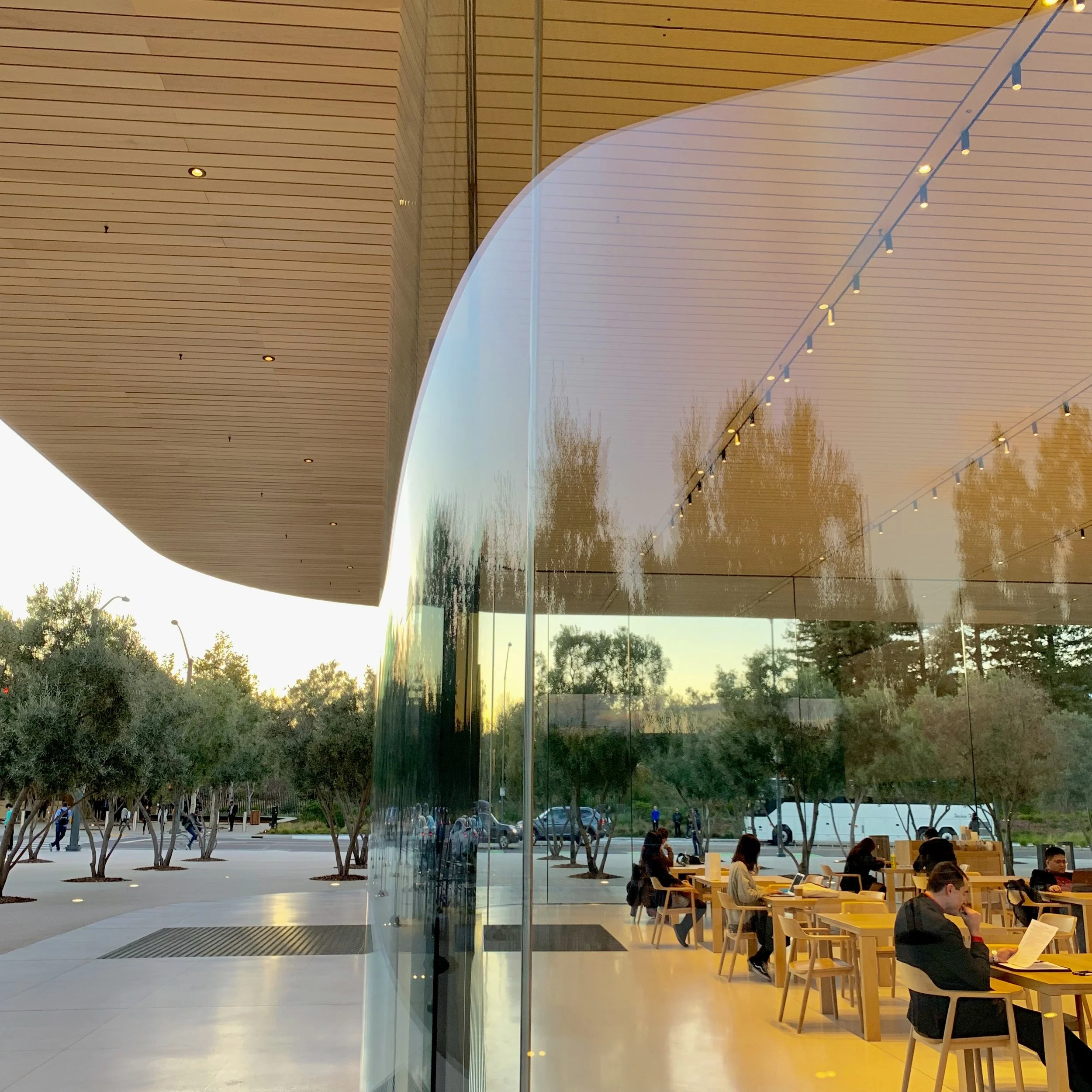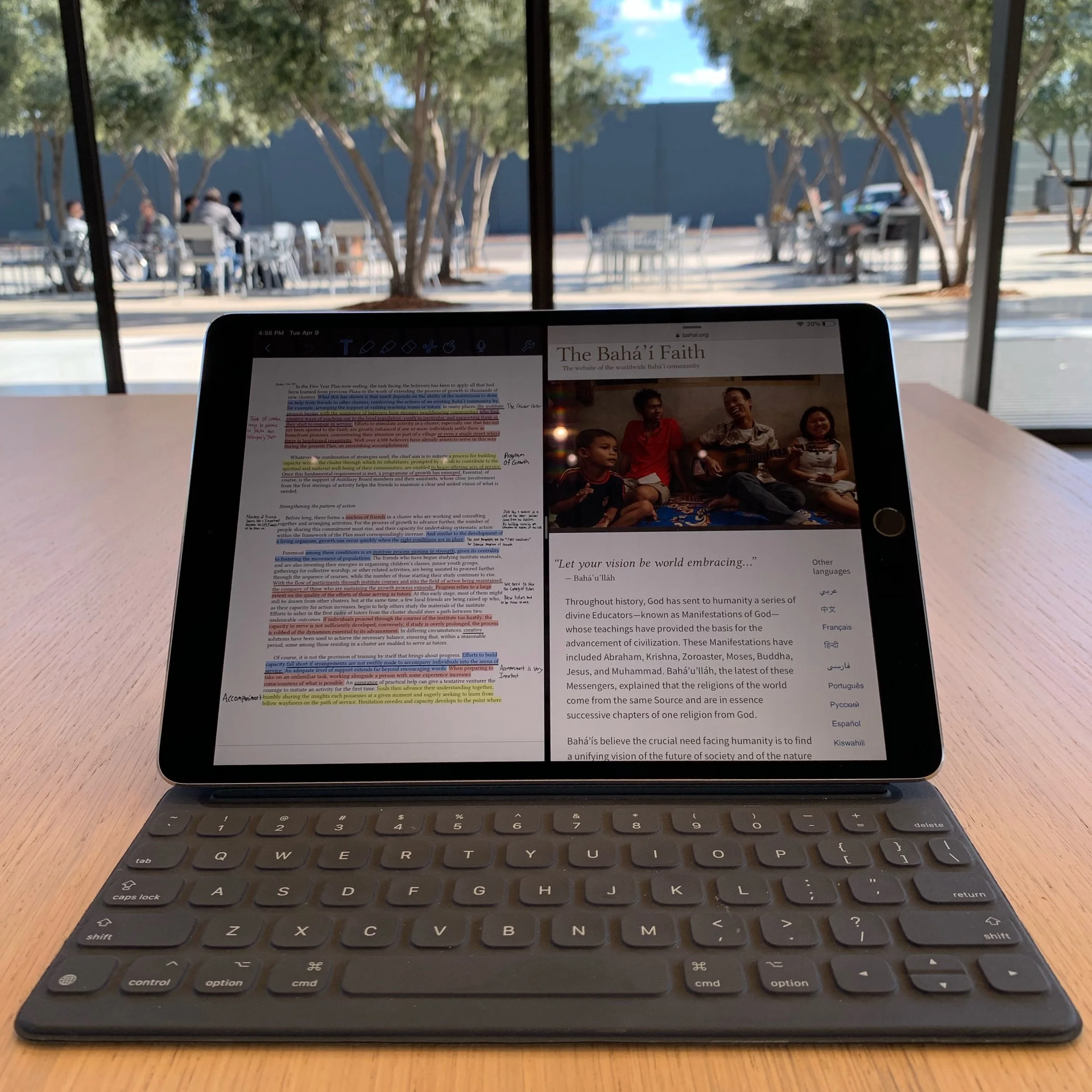A Universal Charging Language?
Since the dawn of the technology age we have used countless different types of cables to plug into countless types of ports on computers, phones, etc. But it’s 2019 now, do we really need to worry about what kind of port our computer has? Imagine a world where the same cable that charges your laptop, charges your phone, where the shape of the port doesn’t matter because they’re all the same port. That’s what technology should be and that’s what USB-C is.
Above is a Picture of a few connectors found in the average household. Right now if you wanted to plug your phone into your TV you would need an adapter. USB-C has the potential to eliminate this headache. In theory you could use the same cable you charge your phone or laptop with to plug into your tv without any adapters. USB-C This means that in theory any of the cables with weird looking ports you have could be merged into USB-C.
Where things get really interesting is that USB-C also can charge anything with 100 Watts of Power, meaning that most things in your house could be plugged in via USB-C. Imagine your TV, technically it too could be powered by USB-C, meaning that in theory the same charger you power your phone with could power an entire TV. Certain lights and other appliances could even be powered by USB-C (probably not your washer and dryer though). Steven Yang the CEO of charging accessory company Anker made this observation in an interview. He goes on to state that in a world where almost everything uses USB-C we wouldn’t need the plug part of our charger anymore. Wall Sockets could be replaced with USB-C ports (similar to in airports only better). That means that in the future all those weird plugs you see when traveling could cease to exist. You could be at a hotel in Singapore and plug into the wall with the same cable as you do in your home country, the same cable you use to display your computer to the tv. Also think about all the waste that happens because we get shipped the same charger in our phone box. According to Yang the entire world produces 4 Billion charging plugs a year. If we just plugged our USB-C Cable straight into the wall we could save significantly on this E-waste. Imagine the entire world united in using the same plug the thought of this excites both the Baha’i and the nerd part of me.
Of course all of this is still in theory. We are definitely on the trajectory of this USB-C future but there’s more to it than that. Apple, one of the most influential companies in the tech world, would need to move it’s iPhone to USB-C. This could upset iPhone users because they already gave up the headphone jack four years ago (which USB-C would also replace). But I would argue the benefits far outweigh the drawbacks. Still I understand the reasons Apple wouldn’t switch the iPhone to USB-C, but I hope they do next year. Also USB-C is a confusing standard to implement, meaning that we could have similar problems as before, but these will eventually be figured out as well. Nonetheless I do believe that USB-C is the future universal charging standard that has the potential to unite all of humanity under one simple charging solution.







